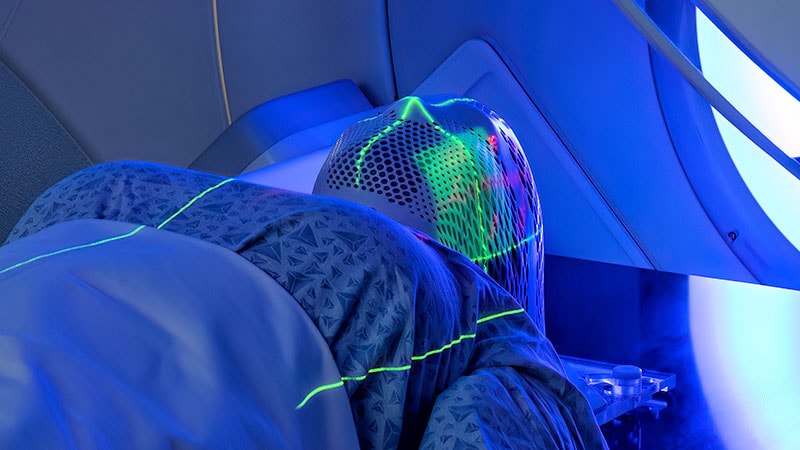Patients in the UK say their lives are being ruined because their doctors are no longer prescribing them liothyronine (T3) for hypothyroidism.
Most hypothyroid patients are first prescribed levothyroxine (T4) but a large minority believe they also need liothyronine (T3) to feel normal.
There's evidence to suggest people are now turning to websites or travelling abroad to get the medication.
It's widely believed by some experts and patients that T3 isn't being prescribed because it costs the NHS too much.
A study in the Lancet Diabetes and Endocrinology revealed the price of T3 has increased 60-fold in 10 years. It found the cost to the NHS for a 28-day course went up from less than £4.50 in 2006 to £258.19 in 2016.
Prices in continental Europe range from 2p to 26p but the NHS pays more than £9 per tablet.
The research by Dr Peter Taylor from the University of Cardiff demonstrated a link between the price increase and prescriptions plummeting.
Dr Krishna Chatterjee is president of the British Thyroid Association, and consultant endocrinologist at the University of Cambridge Medical School.
He says: "The enormous rise in the cost of T3 has coincided with the fall in prescriptions."
The position of the British Thyroid Association is that some patients may gain benefit from a combination of T4 and T3.
"The difficulty is that scientific evidence on the benefits to patients' wellbeing is inconclusive; it is possible that clinical trials to date have not been adequately designed to determine this," adds Dr Chatterjee.
"It's also a question of health economics; as T3 now costs so much more it has been suggested that evidence of its benefits also needs to be stronger," he says.
NHS Guidance
NHS England advice to Clinical Commissioning Groups (CCGs) is that GPs should not initiate T3 for any new patient. In addition, patients currently on T3 should be reviewed by a consultant NHS endocrinologist with consideration given to switching to levothyroxine where clinically appropriate.
NHS guidance states: "The price of liothyronine has risen significantly and there is limited evidence for efficacy above levothyroxine."
It does say that in exceptional circumstances, an NHS endocrinologist may recommend T3 for patients after a 3 month trial.
Claims NHS Guidance Not Being Followed
The guidelines state that there are cases where T3 should be prescribed, to those patients who really need it.
However, a significant report on the issue published in November 2018 showed a widespread failure of local NHS bodies to follow the guidelines.
The report, which was requested by the Department of Health, has been produced by a consortium of thyroid patient organisations, with guidance from the British Thyroid Association.
The organisations received more than 400 patients’ stories that showed how local NHS Clinical Commissioning Groups are not following the national NHS England approved guidance.
"The difficulty with the NHS England guidance is that it is being interpreted in different ways by individual CCGs, resulting in a postcode lottery for prescription of T3," says Dr Chatterjee.
Effects of T3 Being Withdrawn
The evidence gathered for the report showed people have ended up with depression, diabetes, heart problems, weight gain, high cholesterol, and exhaustion from having this drug either taken away or not prescribed in the first place.
Lynne Beswick from Nottinghamshire was on T3 for a number of years following a consultation with an endocrinologist, as T4 wasn't effective for her.
Last year she was taken off it. "My GP said the NHS isn't funding it anymore due to costs. The doctor said she had one patient who went abroad to get her T3," she said.
"As I spent a lot of time in America, I asked the GP to write me a letter so I could get a US prescription for it but she wouldn't as she said she's not allowed to prescribe it anymore.
"When I went back to the endocrinologist, they said there's no research to prove it has benefits," she added.
Lynne Beswick was told by a US pharmacy that a month's supply of T3 would cost $35, which is a fraction of what the NHS is paying for it.
"Other countries can get T3 at a reasonable rate so why can't the UK?" she asks.
There's anecdotal evidence people are going to countries including Thailand, Turkey, Greece, and Germany for the tablets or trying to buy them off the internet.
"I wouldn't get it from a website as you don't know who to trust. I want to make sure I get the correct tablets from a reliable source," says Lynne Beswick.
She says the lack of T3 is having a big impact on her life: "At best I sleep 3 hours a night. I feel like someone has stolen parts of my memory, I've put on a stone and a half, my skin is like fish-scales and I'm tired all the time. I really need T3 to function properly."
Thyroid UK is involved in the campaign to ensure the people who need it can access T3.
Lyn Mynott is its chief executive. She says: "Patients are being denied liothyronine, a drug that can drastically improve their health, due to cost. They are having to access liothyronine either by visiting clinicians via private healthcare, travelling to Europe where liothyronine is a fraction of the cost the NHS is paying in the UK, or purchasing it themselves online without a prescription. This goes against the NHS ethos of healthcare being 'based on clinical need, not the ability to pay'.
"I myself had my liothyronine T3 stopped abruptly last January and I have to now source it online at my own cost and without a prescription because my GP wouldn’t give me a private prescription either," she told Medscape UK.
Carol James from Cheshire had a private test which found her levels of T3 were very low. She couldn't get a prescription of T3 from an NHS endocrinologist. "My GP said, if an endocrinologist says no her hands were tied and she couldn’t prescribe it. She actually said T3 is prohibited on the NHS due to costs," she explains.
Carol James has been self-medicating for over a year. She said without it she would have contemplated suicide.
"When I don’t have T3 I put weight on, slur my words and feel tired all of the time. If I was on my current level of T3 it would cost the NHS about £300 a month. I buy my tablets from Greece and that costs my £20 a month. My GP doesn't like me self-medicating but I feel I have no choice."
She says as there's so much anecdotal evidence of the benefits she'd like to see larger clinical trials of the medication.
Why Has the Price to the NHS Gone Up So Much?
It's thought by de-branding the medication its makers Advanz Pharma, formerly Concordia, were able to avoid NHS rules to stop firms increasing the price of medicines.
The massive increase in the cost of liothyronine (T3) to the NHS is being investigated by the Competition and Markets Authority (CMA). There is also a parliamentary inquiry into the issue.
CMA chief executive, Andrea Coscelli, said: "Pharmaceutical companies which abuse their position and overcharge for drugs are forcing the NHS, and the UK taxpayer, to pay over the odds for important medical treatments. We allege that Concordia used its market dominance in the supply of liothyronine tablets to do exactly that."
The Medicines and Healthcare products Regulatory Agency (MHRA) has given approval for two other companies to enter the T3 market in the UK but they also pitched the price of their tablets at a similar price.
Dr Chatterjee suggests: "Whilst there may be a case for future clinical trials to determine effectiveness of T3, addressing the price issue now would significantly alleviate current problems."
Liothyronine. Case Details with Clear Evidence that NHS England Guidance on Prescription of Liothyronine is not Being Followed by CCGs. Evidence in Response to a Request from The Lord O’Shaughnessy Parliamentary Under-Secretary of State for Health and Social Care. Report.
Lancet Diabetes and Endocrinology. Liothyronine cost and prescriptions in England. Paper.


